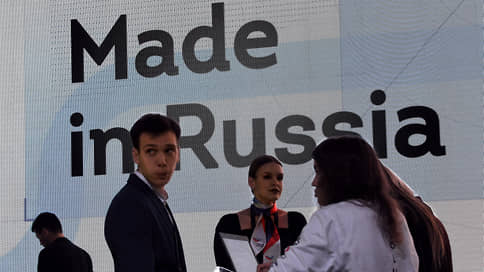Import substitution without bias – Newspaper Kommersant No. 29 (7474) of 02/16/2023
[ad_1]

The level of dependence on imports in the economy of the Russian Federation is lower than is commonly believed – at the level of the United States and India, lower than the developed countries of the EU and much lower than the countries of Eastern Europe. Sanction restrictions changed the emphasis in the import substitution processes that began in the early 2000s, internal restrictions are now less important and have largely been removed, and the possibility of locating part of production in friendly jurisdictions outside the Russian Federation is becoming important. These are just some of the conclusions of the published HSE analytical report on “import substitution yesterday and tomorrow”: the authors give a completely non-pessimistic view of the history of this process in 2000–2021 and its possible future.
Analytical report “Import substitution in Russia: yesterday and tomorrow” – 247 pages of a collective monograph by the authors of the Higher School of Economics (supervisor – Yaroslav Kuzminov, heads of the team of authors – Yuri Simachev, Mikhail Kuzyk, Anna Fedyunina, Andrey Zhulin, Margarita Glukhova, Andrey Klepach) with the participation of RSPP and the VEB Institute for Research and Expertise. It was presented yesterday by the co-authors and discussed at a round table with the participation of representatives of the INP RAS, business associations, Transmashholding and KamAZ, including current cases of import substitution. However, its main value is an attempt to consider the processes of import substitution not as medium- and short-term state campaigns, but in the context of the economic development of the Russian Federation in 2000-2022 and taking into account the world environment.
The work of the HSE is the most detailed and thorough study of import substitution in the Russian Federation in two decades, giving recommendations based on results, and not on industry or corporate interests, to support it. They are quite cautious and do not look alarmist – the authors, perceiving import substitution as a natural component of the economic and industrial development of the completely globalized economy of the Russian Federation, are not inclined to recommend ultra-urgent measures, including due to the sanctions instability of foreign trade conditions.
One of the implicit, but readable theses of the HSE report is a statement of the relative “success” for the Russian economy of the moment when, after the start of the Russian military operation in Ukraine and sanctions from 60% of the world economy (this is a new estimate), it had to reconsider the priorities of import substitution. In its development, the authors distinguish four stages (2000-2008 – integration into global chains, 2009-2013 – stimulation of innovations, 2014-2021 – the first wave of sanctions and the “coronacrisis”, from 2022 – the current one), each of which contained their developmental patterns, successes and failures, and their support strategy. The HSE authors consider the result rather successful (critics of the economic policy of the Russian Federation are usually sincere, at the level of an axiom they are sure of the opposite): the Russian Federation managed to successfully fit into the second world wave of import substitution processes without increasing its dependence on imports and without reducing imports and exports, as was customary in the first wave of import substitution in the world. Now the level of dependence of Russian industry on imports (as a share of consumption of foreign value added in industrial production) is 39% – twice lower than in the countries of Central Europe, one and a half times lower than Canada and Australia, 1.3 times lower than Germany and comparable to the USA and India. These are estimates for 2018; now, apparently, the dependence is much lower – this is part of the HSE economists’ answer to the question of why the effect of sanctions is weaker than expected, and the decline in GDP in 2022 was overestimated even within Russia itself.
There are many important observations in HSE work. Thus, the authors confidently speak about the greater dependence of the manufacturing industry on the import of services and technologies, rather than components and equipment, showing the risks of rapid import substitution with an increase in technological dependence (on the example of the automotive industry), and note the importance of moving a number of supporting industries to friendly jurisdictions instead of their localization in RF. In the work, it is important that there are no exaggerations in both directions: import substitution in Russia is an ongoing process with prospects. Apparently, the main ideological thesis of the report is that frontal import substitution and reduction of imports is not necessary, its structure should change, not volume. There are no usual accents on export orientation in the work: obviously, this is a matter of medium-term prospects, and not 2023.
[ad_2]
Source link






